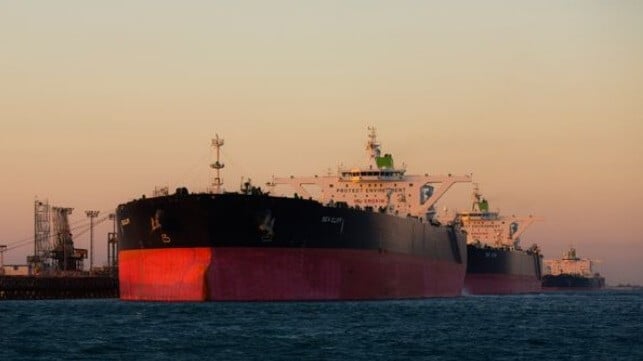U.S. Ramps Up Sanctions on Iran’s Shadow Fleet Tankers

The Biden administration launched a new wave of sanctions targeting Iran’s oil and chemical industry, citing its continued use to fund nuclear activity, development of weaponry, and financial support to regional terrorist activities by the Houthis and others. It follows an action seven weeks ago targeting Iran’s petroleum and petrochemical sectors, with the U.S. saying the efforts will increase Iran’s cost for transporting petroleum products to foreign markets.
“Iran continues to funnel revenues from its petroleum trade toward the development of its nuclear program, proliferation of its ballistic missile and unmanned aerial vehicle technology, and sponsorship of its regional terrorist proxies, risking further destabilizing the region,” said Acting Under Secretary for Terrorism and Financial Intelligence Bradley T. Smith. “The United States remains committed to disrupting the shadow fleet of vessels and operators that facilitate these illicit activities, using the full range of our tools and authorities.”
The focus of the action is on large crude tankers with a total of nine tankers each around 300,000 dwt, as well as five smaller crude oil tankers and three product tankers. The U.S. contends that collectively the tankers have shipped tens of millions of barrels of oil for Iran.
The tankers represent a broad range of flags all linked to the shadow fleet operations. Four of the tankers show registry in the Cook Islands, while the others are divided between the Marshall Islands, Guyana, São Tomé and Príncipe, San Marino, Belize, and Honduras. One tanker is registered in Liberia and one in Iran. Five of the listed tankers are showing a registry in Panama, which last week reported it was expediting revoking its registry against six other tankers that were sanctioned by the UK in its efforts to enforce the G7 price cap on Russian oil.
The U.S. cites examples of the cargoes moved by the vessels, many of which operate at the periphery of the industry. Among the vessels listed is the Ceres I, which the U.S. cites for a ship-to-ship transfer of Iranian oil. They also point out that the same vessel was presenting inconsistent tracking signals in July 2024 when it and a Hafnia tanker collided in Malaysian waters. Malaysia initially accused the vessel of leaving the scene of the incident and has repeatedly said it has been unable to locate the responsible owners of the vessel.
“Iran relies upon a sprawling network of tankers and ship management firms in multiple jurisdictions to transport its petroleum to overseas customers — using tactics such as false documentation, manipulation of vessel tracking systems, and constant changes to the names and flags of vessels,” the U.S. Department of the Treasury said launching the new sanctions.
It also targeted a wide group of management companies that they report are facilitating the transport of crude and oil products. The companies range from bases in the UAE, Seychelles, Cayman Islands, Marshall Islands, and Pakistan to China, Hong Kong, Panama, Liberia, and India. The U.S. links them to oil deliveries and transactions with Chinese oil companies.
The latest sanctions are one of the broadest efforts launched by the administration. The Treasury said it was in response to the October 1 ballistic missile attack on Israel, as well as continued escalation by Iran in its efforts and support of regional groups.
